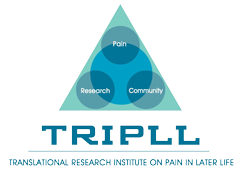Chronic Pain Patients Receive Social Support via Text Messages
allison2018-09-30T23:56:27-04:00A team of TRIPLL Investigators and affiliates, including Cary Reid, TRIPLL's director and Jamie Guillory, Pamara Chang, Chuck Henderson and Geri Gay, recently published an article in The Clinical Journal of Pain which sought to, "examine the preliminary effects of a SMS text message-based social support intervention for reducing daily pain interference levels, improving affect and perceptions of social support in patients with chronic non-cancer pain." The authors enrolled 68 participants who downloaded a pain tracking app to their smartphones and used it to record daily pain scores. Additional social support text messages were delivered to participants in the intervention group. [...]
